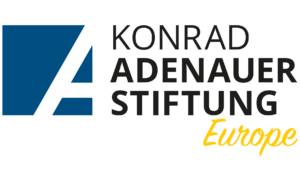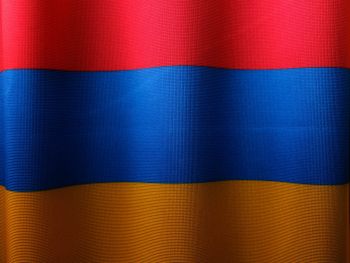Introduction
This event is now closed. You can read the event report here.
The event aimed to create an occasion for dialogue amongst Armenian civil society representatives, the Armenian government and the EU Institutions. The discussion focused on how existing policy instruments and platforms, including the EU’s Eastern Partnership policy, could provide impetus to Armenia’s European aspirations as well as explore the vital role of civil society within these processes.
Strengthening EU-Armenia relations amid an unstable geopolitical situation
Relations between the EU and Armenia have strengthened over the past few years. The adoption of the 2024 EU-Armenia Partnership Agenda and the implementation of the 2024-2027 Resilience and Growth Plan for Armenia are concrete illustrations of this strong bond.
Ambitious cooperations priorities between the EU and Armenia now cover trade and energy diversification, infrastructure, economic and institutional resilience and support to the refugees from Nagorno-Karabakh.
This is crucial given the shifting geopolitics of the region. Russia’s full-scale invasion of Ukraine and the forced displacement of more than 100,000 Armenians from Nagorno-Karabakh as a result of Azerbaijan’s military offensive have shown that the EaP region still needs to invest significant efforts to establish regional peace, security and sustainable democratic institutions
In Armenia, physical and hybrid threats in the form of foreign information manipulation, interference and cyber-attacks continue to undermine the security architecture of the country. If on the one hand, Armenia has frozen its CSTO membership and cooperated extensively with the EU to prevent circumventing sanctions, the country’s European aspirations are still navigating geopolitical challenges and economic dependencies.
Indeed, long established patterns of trade and energy dependence on Russia had an impact on Armenia’s resilience. In this regard, despite the existing agreements with the Eurasian Economic Union, significant steps have been taken to reduce dependencies and strengthen Armenia’s security resilience.
Armenian civil society has a key role to play as a trusted partner and agent of change, promoting European values and sustainable democratic reform. Importantly, civil society has acted as a rich source of expertise on EU legislative and regulatory approximation, in particular in the area of democratic reforms, human rights, fight against corruption and the rule of law.
Agenda
9.30 – 9.45 Welcome remarks
- Ms Tania Marocchi, Director, Eastern Partnership Civil Society Forum
- H.E. Tigran Balayan, Ambassador of the Republic of Armenia to the Kingdom of Belgium, Head of Mission of Armenia to the European Union
- Dr. Beatrice Gorawantschy, Director, European Office of Konrad-Adenauer-Stiftung
9.45 – 11. 15 Armenia’s European Horizon: Pathways to European Integration
What role does the EaP policy, and its multilateral track, play in fostering Armenia’s foreign policy alignment towards Europe? How can Armenia leverage the EaP to strengthen its economic, political, and social ties with the European Union? What challenges and opportunities does Armenia face in this integration process, and how can they be effectively addressed? How does Armenia balance its commitments to the EaP and deeper relation with the EU with its relationships with other regional powers, such as Russia and its involvement in the Eurasian Economic Union and CSTO?
- H.E. Tigran Balayan, Ambassador of the Republic of Armenia to the Kingdom of Belgium, Head of Mission of Armenia to the European Union
- Ms Dorota Dlouchy-Suliga, Head of Division, Georgia, Moldova, Armenia, Azerbaijan, Belarus (EURCA.EER.3), European External Action Service
- Ms Lousineh Hakobyan, Co–Chair of the EU–Armenia Civil Society Platform
- Mr Pavel Havlicek, Research Fellow, Association for International Affairs (AMO)
- Moderator: Mr Andrea Raimondi, Policy and Advocacy manager, Eastern Partnership Civil Society Forum
11.15 – 11.30 Short break
11.30 – 13.00 Enhancing Human Security and Building Resilient Societies in Armenia
How can civil society contribute to strengthening socio-economic resilience and enhancing human security in Armenia? What avenues for engagement should be used or established to strengthen ties between Armenian civil society, the EaP region, and the EU?
- Mr David Cullen, Deputy Director, Head of Unit, Armenia, Azerbaijan, Belarus & Eastern Partnership Coordination (NEAR.C.2), DG NEAR, European Commission
- Ms Anna Skiba, Delegate for Working Party on Eastern Europe and Central Asia (COEST) of the Council of the EU, Permanent Representation of Poland to the European Union
- Mr Edgar Khachatryan, National Facilitator, Armenian National Platform of the Eastern Partnership Civil Society Forum
- Mr Simon Papuashvili, Programme Director, Eastern Europe and South Caucasus, International Partnership for Human Rights
- Moderator: Mr Andrea Raimondi, Policy and Advocacy manager, Eastern Partnership Civil Society Forum
13.00 – 13.05 Concluding remarks
- Ms Tania Marocchi, Director, Eastern Partnership Civil Society Forum
13.05 Networking lunch
This event was organised by the Eastern Partnership Civil Society Forum and took place under the series of events “30 in 2030?” of the Konrad-Adenauer Stiftung European Office.


register for
Armenia in focus: Navigating the EaP, Regional Security and European Integration
-
November 12, 2024
-
Avenue de Cortenbergh 120, 1000, Brussels